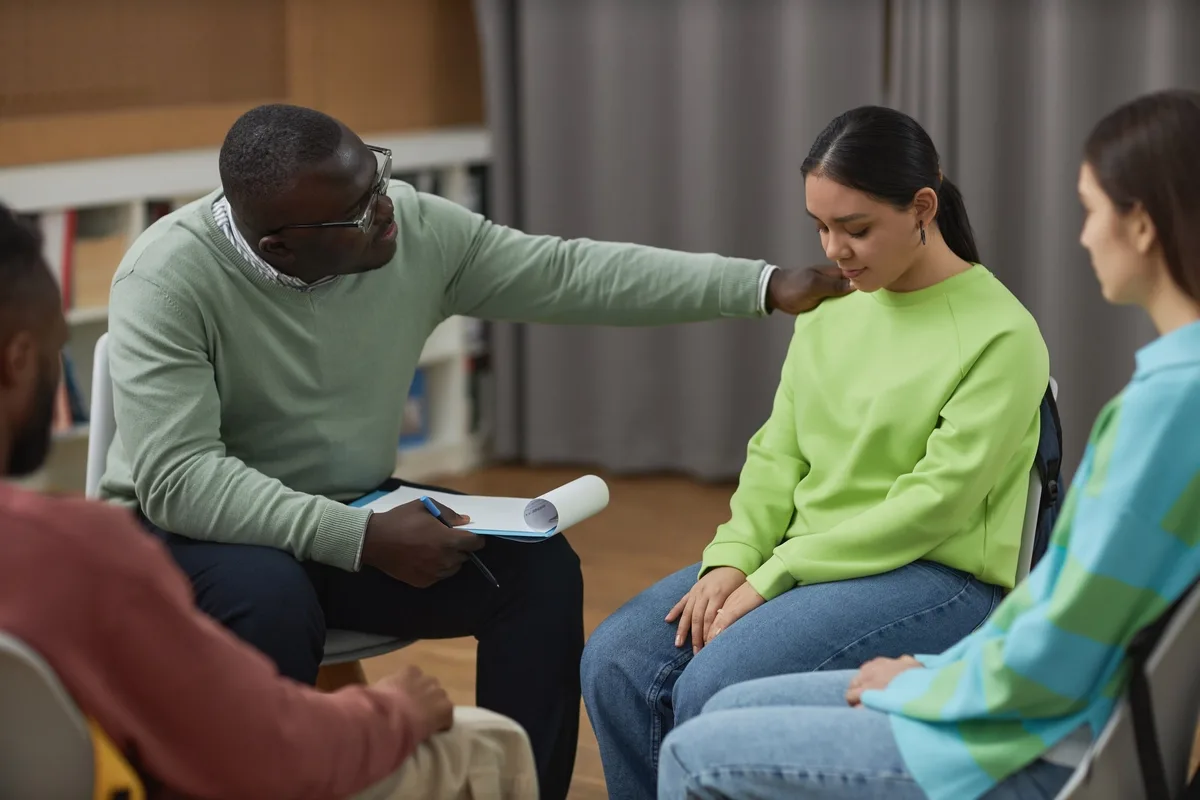24/7 Helpline:
(866) 899-111424/7 Helpline:
(866) 899-1114
Learn more about Cocaine Detox centers in Ramsey County

Other Insurance Options

ComPsych

Sliding scale payment assistance

Ambetter

Ceridian

PHCS Network

American Behavioral

BlueCross

Anthem

Sutter

Oxford

Access to Recovery (ATR) Voucher

Amerigroup

AllWell

Cigna

WellCare Health Plans

MVP Healthcare

EmblemHealth

Magellan

Molina Healthcare

UMR














